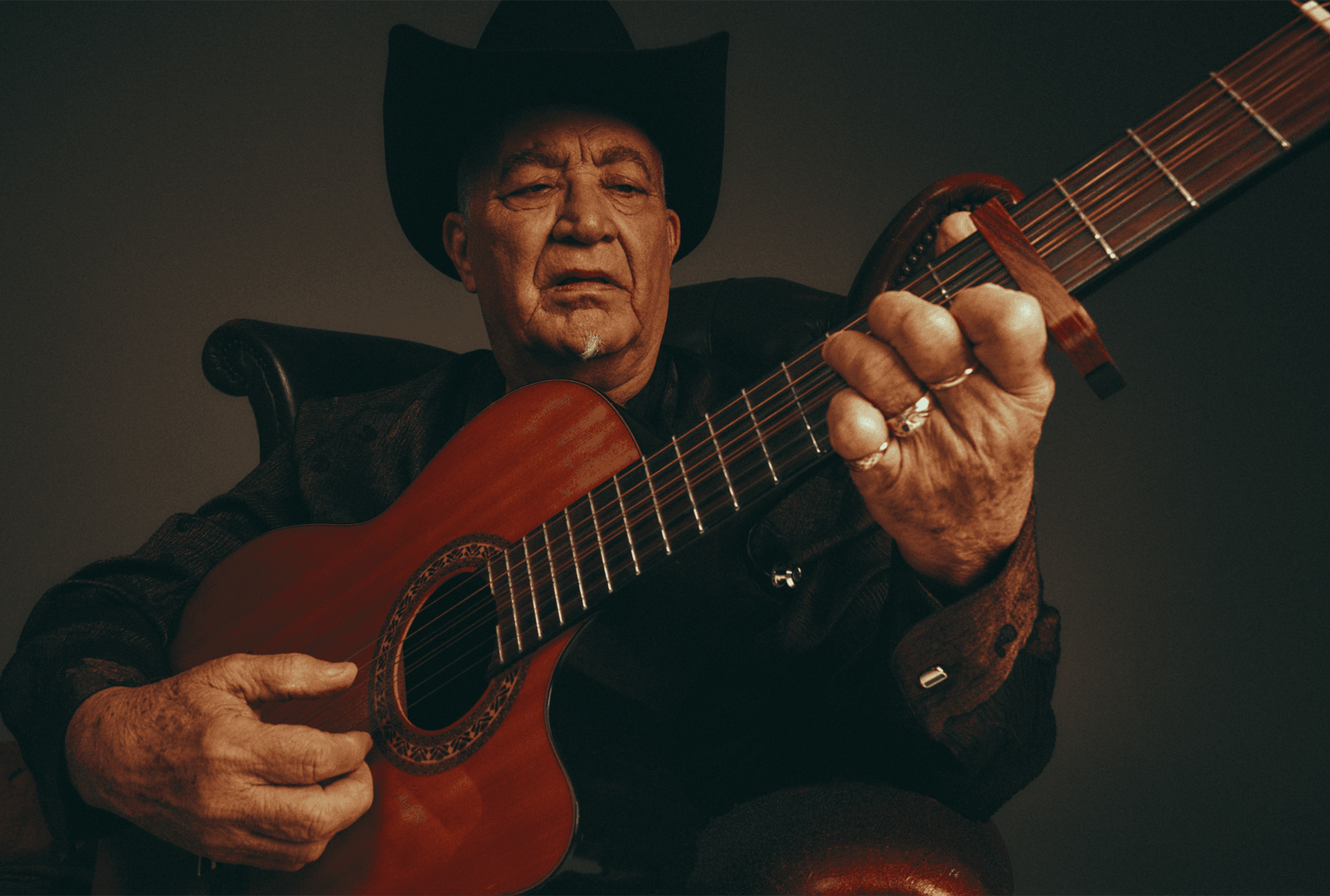

American Strings: Eliades Ochoa
Date May 06, 2026 7:30pm Pricing $35 – $65One of the most renowned Cuban soneros of all time, a notable defender of traditional Cuban music, and a legendary guitarist and tresero of his generation, Eliades Ochoa joins American Strings host Kelly Bosworth for a one-on-one conversation before playing a full set with his band.
Come hear how Ochoa, alongside Compay Segundo and the veteran musicians of the Buena Vista Social Club, inspired a global craze playing traditional songs that pay homage to the Spanish and African roots of Cuban music. And yes, you can expect to see this legendary, multi-Grammy-winning champion of the Son Cubano wearing his signature cowboy hat.
Eliades Ochoa was born in Santiago de Cuba on June 22, 1946, in Songo la Maya, Santiago de Cuba. Eliades is considered one of the most renowned Cuban “soneros” of all time, a notable defender of traditional Cuban music, and the best guitarist of his generation. His distinctive cowboy hat and his penchant for wearing black have led some to call him “The Cuban Johnny Cash.”
From a very young age, he began to play the guitar with his parents of peasant origin as teachers and in a self-taught way. He alternated with itinerant troubadours from a very young age. In his walks through “guateques,” bars, and “zonas de tolerancia,” he began to learn the vast traditional repertoire of Cuban music, of which he is a teacher today. His musical style is due to his place of origin, the Cuban countryside, the anecdotes he listened to, the “guateques campesinos,” and a series of other elements that marked him and made him the artist he is today.
Now in its seventh year, PRAx and the College of Liberal Arts at Oregon State University present American Strings, a series of conversations and intimate performances with iconic musicians from the Americas whose perspectives shape our world. Prior guests have included Keb’ Mo’, Rosanne Cash, esperanza spalding, and many more.
Hosted by ethnomusicologist and public historian Kelly Bosworth, American Strings performances offer audiences the chance to hear artists play and reflect on their practice. In conversation, artists discuss process, biography, and the themes of their work. Conversation is followed by musical performance. Guests typically perform unaccompanied, but in select cases may appear with their ensembles.
Dr. Kelly Bosworth is Mary Jones and Thomas Hart Horning Assistant Professor of Public History and Ethnomusicology at Oregon State University, where she teaches courses such as “Social Change and American Popular Music” and “Musical Worlds of the Pacific Northwest.”She works at the intersection of sound, place, and belonging. Her research on music/sound/noisein U.S. history delves into the diverse archives of musicmaking, reconstructing often-silenced histories through the songs and sounds associated with place. Her PhD dissertation (Indiana University, 2024) explored “The Music of Miracle City: Vanport, Oregon and the Sonic Imaginaries of Multiracial Democracy.”
Sponsored by John and Kate Stirek
